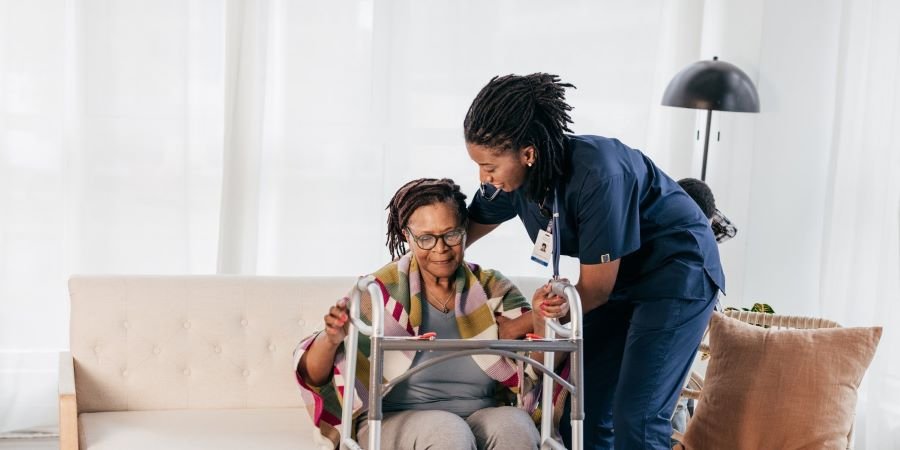Home Care Essentials: Making Homes Safer and More Comfortable for Those Needing Care
For individuals with special care needs, ensuring a safe and comfortable home environment is crucial. Whether you’re caring for an elderly person, a child with disabilities, or someone recovering from surgery, thoughtful home modifications, specialized equipment, and advanced technology can dramatically improve their quality of life. At Ezee Solutions Academy & Home Care Services Limited, we focus on providing top-quality care services, and here are some key essentials to make homes more conducive for those needing care.
1. Prioritize Safety with Home Modifications
Home safety is the foundation of effective care. Many hazards in homes can be addressed with simple modifications:
Install Grab Bars and Handrails: Bathrooms and staircases are common places where accidents happen. Adding grab bars near the toilet, shower, and along staircases can provide essential support for those with limited mobility.
Non-Slip Flooring: Replace or cover slippery floors with non-slip mats, especially in areas like the bathroom and kitchen, to reduce the risk of falls.
Declutter Pathways: Ensure that all hallways and commonly used areas are free from obstructions like loose rugs or furniture. This is particularly important for individuals who use mobility aids like walkers or wheelchairs.
Adequate Lighting: Well-lit spaces prevent accidents. Consider night lights in hallways, bathrooms, and bedrooms to assist those who may get up during the night.
Smart Home Alarms: Install smoke detectors, carbon monoxide alarms, and emergency alert systems. For individuals who may not be able to respond quickly, having voice-activated or remote-controlled alarms is a smart choice.
2. Essential Equipment for Home Care
Investing in the right equipment can make caregiving easier and more effective:
Adjustable Beds: These beds allow users to change positions for better comfort and can help caregivers by minimizing the need for manual adjustments. They can also prevent bedsores for individuals with limited mobility.
Wheelchairs and Mobility Aids: Ensure the person needing care has the appropriate mobility aid, whether it’s a wheelchair, walker, or cane. Proper fitting is key to preventing further injury.
Lift Devices: For caregivers assisting individuals with limited mobility, a mechanical lift can be a lifesaver. It reduces the physical strain on caregivers and ensures the safe transfer of patients from beds to chairs or bathrooms.
Commodes and Shower Chairs: If mobility is a challenge, a commode near the bed or a shower chair can make daily hygiene more manageable without putting strain on the individual or the caregiver.
3. Leveraging Technology for Enhanced Care
Remote Monitoring Systems: Devices that track vital signs, detect falls, or monitor movement can alert caregivers of potential health issues. This is particularly useful for patients with chronic illnesses or disabilities.
Smart Medication Dispensers: These devices can be programmed to remind individuals to take their medication at specific times. They can be set up to notify both the patient and the caregiver if a dose is missed.
Communication Devices: Voice-activated assistants like Amazon Alexa or Google Home can help individuals with limited mobility control lights, TVs, or thermostats. They can also be used to make emergency calls or set reminders for tasks.
4. Comfort Essentials for a Better Quality of Life
Comfortable Seating: Invest in ergonomic chairs or recliners that provide proper support and can accommodate the individual’s specific needs, such as pressure relief cushions for those sitting for long periods.
Personalized Spaces: Encourage personalization of the home environment with familiar items like photos, books, or blankets to create a sense of comfort and stability, particularly for individuals with cognitive impairments such as dementia.
5. Training for Caregivers and Family Members
Whether care is provided by professional caregivers from Ezee Solutions Academy & Home Care Services Limited or family members, proper training is crucial for providing effective and safe care:
First Aid Training: Ensure that caregivers know basic first aid, including how to handle falls, choking, or medical emergencies. Having a well-stocked first aid kit in easily accessible locations is also a must.
Proper Lifting Techniques: Caregivers should be trained on how to lift patients without causing injury to themselves or the person they’re assisting.
++
Use of Medical Equipment: Understanding how to operate medical equipment such as oxygen machines, ventilators, or feeding tubes is crucial for the safety and well-being of the individual receiving care.
Conclusion
Creating a safe, comfortable, and technologically equipped home for individuals in need of care is not just about providing basic necessities—it’s about enhancing their quality of life. By following these home care essentials, caregivers and family members can ensure that the homes of those they care for are safe havens that promote dignity, independence, and comfort. At Ezee Solutions Academy & Home Care Services Limited, we believe in equipping both caregivers and families with the right tools, knowledge, and support to provide the best care possible.
If you’re looking for professional guidance or support in transforming your home into a safe, caring environment, don’t hesitate to reach out to us. Together, we can make home the safest place to be.


